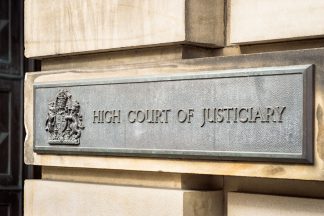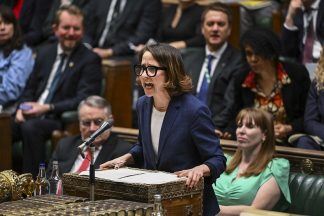The business of strategizing a political cause involves working back the way.
First, you start with the endgame, in this case a referendum as a means of achieving Scottish independence.
Second, you work out how you get there, intellectually road-testing the potential pitfalls along the way as a means of eliminating any inherent flaws in what you propose.
It seems to this observer that the SNP have mired themselves in a swamp which limits their room for tactical manoeuvre.
Too often, pronouncements seem rushed and not very well thought through and the casualty in all likelihood will be their cherished endgame.
The morning after the Brexit vote, Nicola Sturgeon announced that work would start on a bill to be presented to the Scottish Parliament to stage another referendum.
At the time I did wonder, has she sought legal advice as to its competence? If she hasn’t, then her authority will be dented when it is torpedoed either by the law officers or the Supreme Court. In that event it will leave her with nowhere to go.
From Brexit came the knee-jerk of the consultative referendum strategy. When the Supreme Court stated the constitutionally obvious, then came the knee-jerk strategy of using the next general election as a “de facto referendum”.
In all of this politicking some obvious pitfalls do not appear to have been considered, chief among them, what do you do when you are denuded of your strategy?
And all the while, the Sturgeon administration spent time on the how of delivering a referendum rather than the why independence is needed from its perspective.
The SNP have said little about their substantive case, instead relying on half-baked strategies riddled with pitfalls.
Of course, the Sturgeon era is over and with it her de facto referendum strategy. Or is it?
At the weekend, the First Minister appeared to keep the strategy only to redefine it in ways that stretch credibility.
Nicola Sturgeon’s position was that 50% of the electorate supporting pro-independence parties at the next UK General Election would constitute a mandate to start talks on indyref2.
Humza Yousaf said that winning a majority of seats is now the threshold to start those negotiations.
Now if you win a majority of seats, you can credibly claim to have won an election.
But to argue you have a mandate for independence when you could have lost a large chunk of your MPs and your vote share, appears to embrace the principle that going back the way is the best way to go forward.
If the sovereignty of the people is measured in all of their votes, how does a minority of those votes constitute a mandate when a majority have voted for unionist parties?
For the life of me I really can’t work out where the Government is going on all of this?
The SNP leader did reiterate that only a legal poll will do. As the Supreme Court made clear, unless Westminster agrees it doesn’t happen.
What makes the First Minister think that anyone at Westminster will want to talk to him in circumstances where his party has won the election in terms of seats but has shed lots of votes?
Voters are sovereign and have the right to vote on issues that matter to them. Politicians trying to tell them they should focus on one issue above all else is just plain daft, for it will rub them up the wrong way.
The fact that Holyrood is constitutionally handcuffed by the Scotland Act on this issue is the first point the SNP should be addressing.
On a creeping number of issues, from the deposit return scheme to gender recognition, Humza Yousaf has railed about devolution being undermined by Westminster interference.
He misses the point.
UK ministers are not undermining devolution, they are exercising their right to a say on certain matters granted by the legislation that established the Scottish Parliament.
I would have thought that the argument that he should be making is that the current arrangements are not fit for purpose, and they need to be re-examined.
Of course, a Parliament which is itself the creature of a statute passed by another Parliament cannot possibly be sovereign in any meaningful sense.
Put crudely, what Westminster gives, Westminster can take away.
SNP politicians can argue about the “sovereignty of the Scottish people” but the basis of law making still remains the crown in parliament.
I would have thought that nationalists should abandon engaging in arguments about interference and more about whether the Scotland Act is fit for purpose.
A wider debate on the constitution could also address the issue of a trigger mechanism that would set out how a second referendum could take place.
Why does the First Minister want independence? Why isn’t he agitating for a change to the Scotland Act to remove obstacles to his party’s ambitions? These would appear to be pertinent questions.
The twists and turns on strategy are baffling not just to me but many other commentators who have covered these events as long as I have.
If they are baffling those in the political bubble, what on earth are the voters supposed to make of this?
The remarkable aspect of the post 2014 debate is that Scotland remains divided and although opinion has changed at the margins it has not changed in any material sense for any sustained period of time.
The party of independence now looks as if it will poll below the levels of support for its central aim. If that doesn’t speak to a credibility gap, then I don’t know what does.
Humza Yousaf in reality has not delivered any fresh thinking on the issue that fires his activists above all else.
For all of the analysis of events in Dundee at the weekend this just looks like a rehashed strategy.
One of his predecessors as SNP leader, Alex Salmond, had a phrase for policies that had a whiff of repetition. He would denounce them as “cauld kale het up”.
Follow STV News on WhatsApp
Scan the QR code on your mobile device for all the latest news from around the country






















